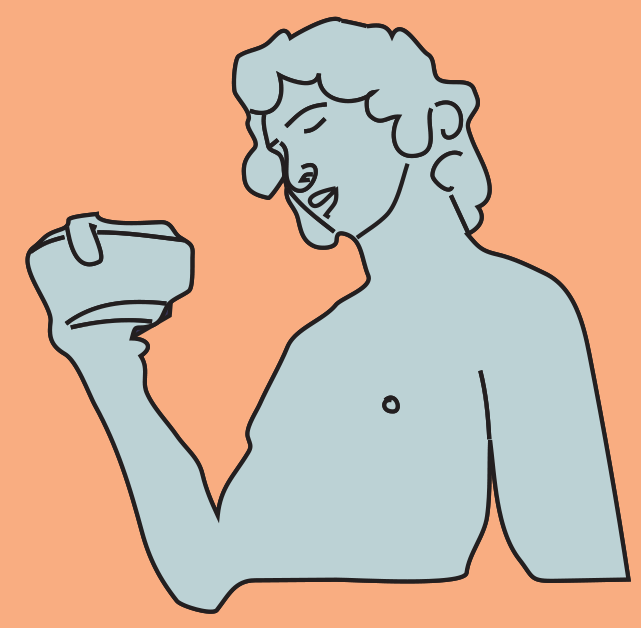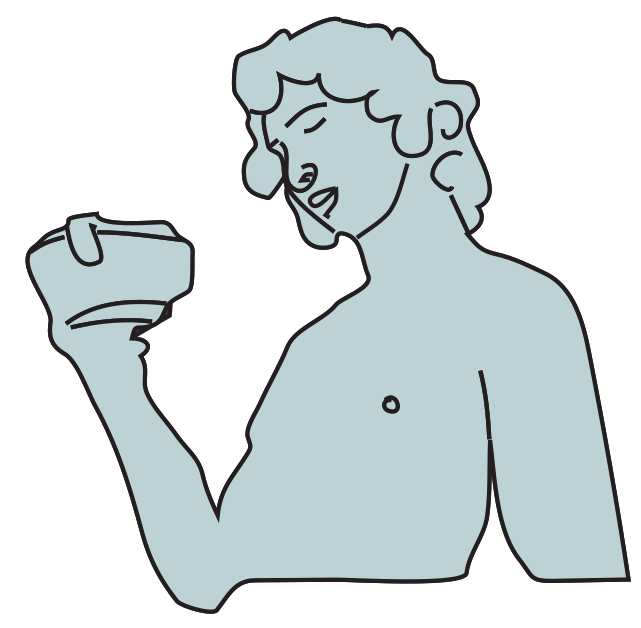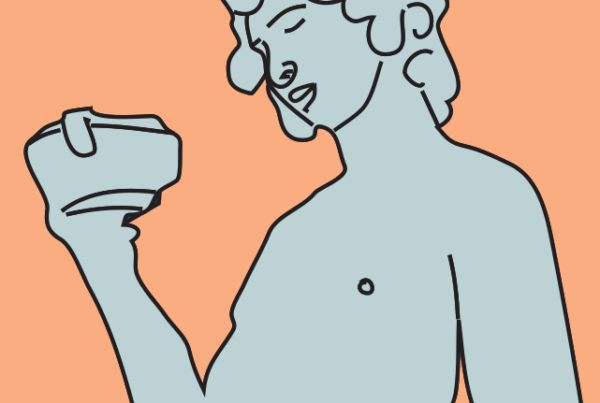

Anushka, one of our editors in chief, recommended an APA podcast on friendships. In the podcast, we learn that friendships come about when people engage in continuous unplanned interactions that allow for vulnerability. Once we leave university and enter the workforce, these interactions and therefore possibilities to make new friends diminish. As I won’t graduate soon, you might think post-university friendships don’t concern me. But since I’m a chronic overthinker, you bet this topic has crossed my mind. It’s easy to become overwhelmed when faced with articles and podcasts that touch on the difficulties of adult friendships. However, when the worries kick in, I reflect on my high school and university days and I can confidently reassure myself that I’m going to be just fine.
When I think about the change in friendships I’ve experienced over the years, I usually don’t refer to it as change but makeover. Change tends to have a negative connotation but a makeover is exciting and brings opportunities, just look at Mia Thermopolis! Thus, my first friendship makeover took place in high school. Suddenly, my friends and I weren’t in the same class anymore but scattered across several courses. Our clique broke up as some went on exchange while others wanted a fresh start. While this transition wasn’t the easiest phase of my life, it was just a phase. Eventually, I met incredible people whom I’m friends with to this day. We still celebrate my birthday every summer and go on vacation if our schedules allow. Not even the pandemic could come between us. If anything, we feel closer than ever. Thus, that is the tale of how I survived my first friendship makeover.
Let’s have a look at my second friendship makeover. I won’t lie, I struggled to maintain old friendships when I started university. Maintaining friendships requires effort, effort I couldn’t invest while meeting new people every day. Not only did I meet a gazillion people during my first weeks at university, I also had to figure out who of these people would become part of my friend group. Looking back, I should have been more patient with myself and realise that lasting friendships take time. But by joining extracurricular groups at university, sport teams, language courses, and most importantly, bonding with my roommates, I gradually made amazing friends. And while I’m not in daily contact with all of them, they’ve made moving and living abroad a blast. This is how my second friendship makeover played out and I survived this one as well.
While I keep saying I survived these friendship makeovers, on second thought, I didn’t just survive, but even thrived. Because of the makeovers, I’ve become good at maintaining friendships. I try to video call my friends as often as I can. Not only do I keep them updated about all the outfit choices for my dates, I also send them thousands of memos and memes that remind me of them. We even started a book club to stay in touch, despite none of us actually having time to read anything other than the incredibly interesting course literature. Besides becoming good at maintaining friendships, these makeovers also made making friends easier. That’s because I don’t enter social interactions with the expectation of making lasting friends. I see them as a great way to meet new and interesting people. Some of those might become my friends, but that happens over time.
Thus, everytime I get confronted with the difficulties of post-university friendships, I try to reflect on my first and second friendship makeover and the amazing friends I’ve made over the years. The ones that live abroad with whom I am continuously in contact, the ones who barely text but are always there for me, and the new ones I’m excited about because I don’t know how our friendship will grow yet. And after reflecting on all of that, I can’t wait to graduate. Because, if the first and second makeover brought that many great people into my life, how nice will the third one be? <<

Anushka, one of our editors in chief, recommended an APA podcast on friendships. In the podcast, we learn that friendships come about when people engage in continuous unplanned interactions that allow for vulnerability. Once we leave university and enter the workforce, these interactions and therefore possibilities to make new friends diminish. As I won’t graduate soon, you might think post-university friendships don’t concern me. But since I’m a chronic overthinker, you bet this topic has crossed my mind. It’s easy to become overwhelmed when faced with articles and podcasts that touch on the difficulties of adult friendships. However, when the worries kick in, I reflect on my high school and university days and I can confidently reassure myself that I’m going to be just fine.
When I think about the change in friendships I’ve experienced over the years, I usually don’t refer to it as change but makeover. Change tends to have a negative connotation but a makeover is exciting and brings opportunities, just look at Mia Thermopolis! Thus, my first friendship makeover took place in high school. Suddenly, my friends and I weren’t in the same class anymore but scattered across several courses. Our clique broke up as some went on exchange while others wanted a fresh start. While this transition wasn’t the easiest phase of my life, it was just a phase. Eventually, I met incredible people whom I’m friends with to this day. We still celebrate my birthday every summer and go on vacation if our schedules allow. Not even the pandemic could come between us. If anything, we feel closer than ever. Thus, that is the tale of how I survived my first friendship makeover.
Let’s have a look at my second friendship makeover. I won’t lie, I struggled to maintain old friendships when I started university. Maintaining friendships requires effort, effort I couldn’t invest while meeting new people every day. Not only did I meet a gazillion people during my first weeks at university, I also had to figure out who of these people would become part of my friend group. Looking back, I should have been more patient with myself and realise that lasting friendships take time. But by joining extracurricular groups at university, sport teams, language courses, and most importantly, bonding with my roommates, I gradually made amazing friends. And while I’m not in daily contact with all of them, they’ve made moving and living abroad a blast. This is how my second friendship makeover played out and I survived this one as well.
While I keep saying I survived these friendship makeovers, on second thought, I didn’t just survive, but even thrived. Because of the makeovers, I’ve become good at maintaining friendships. I try to video call my friends as often as I can. Not only do I keep them updated about all the outfit choices for my dates, I also send them thousands of memos and memes that remind me of them. We even started a book club to stay in touch, despite none of us actually having time to read anything other than the incredibly interesting course literature. Besides becoming good at maintaining friendships, these makeovers also made making friends easier. That’s because I don’t enter social interactions with the expectation of making lasting friends. I see them as a great way to meet new and interesting people. Some of those might become my friends, but that happens over time.
Thus, everytime I get confronted with the difficulties of post-university friendships, I try to reflect on my first and second friendship makeover and the amazing friends I’ve made over the years. The ones that live abroad with whom I am continuously in contact, the ones who barely text but are always there for me, and the new ones I’m excited about because I don’t know how our friendship will grow yet. And after reflecting on all of that, I can’t wait to graduate. Because, if the first and second makeover brought that many great people into my life, how nice will the third one be? <<

